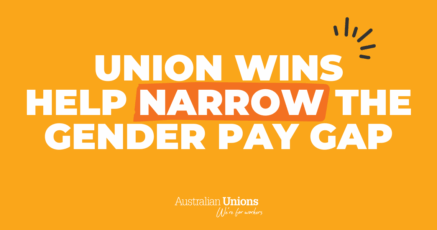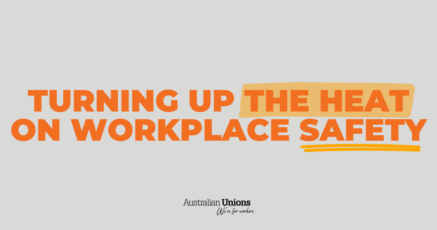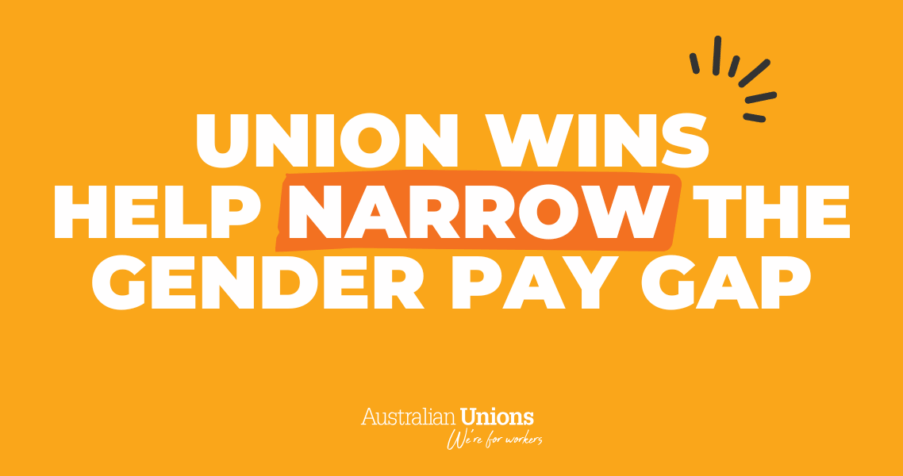Your first job can be daunting, maybe a little unnerving. But hey, we’ve all been there. Follow this short guide to start out strong from day one.
1. Read your employment contract
Your employment contract is one of the many pieces of paper (hard copy or digital) that you would have signed when you first started your job.
Your employment contract will set out the terms and conditions of your employment and some basic information about your role including your rate of pay. It can also include things like:
- The day your employment starts
- Workplace location
- Your job title and description
- An outline of your responsibilities
- The number of hours you work each week
- How much notice you need to give or receive when ending your employment
- Commitment to workplace policies
2. Find out whether you’re on an Award or an Enterprise Bargaining Agreement
You can find whether you’re on an Award in your employment contract. If you’re on an Enterprise Bargaining Agreement (EBA), your employer should have given you a copy when you started.
In some cases, you won’t be on either. But legally an employee cannot be paid lower than the national minimum wage. The minimum wage is different depending on how old you are: look at this table to see which rate applies to you.
3. Sort out your superannuation
A form for superannuation will be another of those pieces of paper you will have been provided when you began.
This one is also incredibly important. Superannuation is money paid into a fund for you to access in retirement. While that may sound far away, you want to start putting dollars into your super fund sooner rather than later.
Super is paid on top of your wages and is calculated as a portion of your pay. The superannuation guarantee is the minimum superannuation amount your employer must contribute. As of July 2022, it is 10.5 per cent of your ordinary earnings.
Previously, there was a threshold that meant if you were under 18, your employer had to provide superannuation payments if you worked more than 30 hours and earned $450 in a month.
Thank to years of union campaigning, the $450 threshold was removed in July 2022. But if you’re under 18, you still have to work more than 30 hours per month to qualify for the super guarantee.
It’s also worth keeping in mind that you are allowed to choose which superannuation fund you want to use. But it’s worthwhile looking at industry super funds to get the most out of your earnings.
Unlike retail super funds, industry super funds neither charge exorbitant fees, nor pay sales commissions. The purpose of these funds adheres is exactly what superannuation should do: deliver the best possible savings for when you retire.
Head into your new job with your best foot forward and find out which super fund suits you.
4. Check your payslips (and those juicy public holiday rates)
If you are working your first job this summer then you have a few public holidays to keep an eye out for in December and January.
Generally speaking, casual employees are entitled to be paid at 250 per cent of their base pay rate if they work on a public holiday (often referred to as ‘double time and a half’).
These are known as penalty rates and also apply in other situations such as when you work on weekends.
Regardless of which state or territory you are in, these days count as public holidays:
- Sunday 25 December 2022
- Monday 26 December 2022
- Tuesday 27 December 2022
- Sunday 1 January 2023 (except Tasmania)
- Monday 2 January 2023
Some states and territories have additional dates to the ones above. Check to see which public holidays apply in your area for 2022 and 2023.
The best way to check if your employer is correctly paying your wages and superannuation contributions is to look at your pay slips.
Your employer is legally required to provide you a pay slip each time you are paid. It can be hard copy or electronic and must be given within one working day of being paid.
If the numbers aren’t adding up or something doesn’t look right, contact your union. The best way to land a pay rise and protect yourself against wage theft is to be a union member.
Whether you have tough questions you need answering or you’re ready to take action, your union is the first source of information about your wages and working rights.
This is what we do – day in, day out – so you can trust your union to give you the right information at the right time.






SHARE:
Starting your first job? Follow these four tips to look like a pro